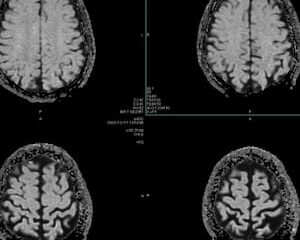Science
NZ$1.7 Billion Bet on Humanity’s Lifespan Sparks Debate

A staggering NZ$1.7 billion is at stake as experts and investors speculate on whether medical advancements will enable humans to live to the age of 150. This thought-provoking wager highlights the advancements in medical science, particularly in the field of organ and tissue transplantation, but raises questions about the limitations of current technology, especially concerning the brain.
Advancements in Medical Science
Over recent decades, significant strides have been made in organ and tissue transplantation. Innovations in surgical techniques and post-operative care have improved the success rates of these procedures. For instance, heart transplants, kidney transplants, and other organ replacements have become routine, allowing patients to extend their lives considerably.
Despite these impressive achievements, the field of organ transplantation has its limitations. The brain, a complex organ, remains largely untouched by these advancements. While scientists have made progress in understanding neurological conditions, effective solutions for brain replacement or extensive repair are still in the realm of research. This disparity between advancements in other organs and the brain adds an intriguing layer to the debate surrounding human lifespan.
The Implications of Living Longer
The prospect of living to 150 raises numerous ethical, social, and economic questions. One major concern is the impact on global healthcare systems. If individuals live significantly longer, the demand for healthcare resources could skyrocket, potentially straining public health systems across the globe.
Furthermore, there are implications for social structures, including retirement and workforce dynamics. As people age, their roles in society may shift, requiring new approaches to career, caregiving, and community engagement. Experts from various fields, including gerontology and economics, are beginning to explore these potential changes, emphasizing the need for forward-thinking policies.
Institutions are already beginning to prepare for this potential demographic shift. Companies are investing in technologies aimed at enhancing quality of life for the elderly, while governments are exploring policy adjustments to accommodate an aging population. The prospect of a longer life span is not just a medical issue; it represents a complex challenge that society must address collectively.
The Role of Investment and Research
With NZ$1.7 billion in wagers on the line, investment in longevity research is at an all-time high. Venture capital firms are pouring funds into biotechnology companies focused on anti-aging and regenerative medicine. These investments aim to accelerate research into the mechanisms of aging and explore possibilities for extending human life.
Some of the most promising areas of research include gene therapy, stem cell therapy, and advancements in nanotechnology. These fields hold the potential to address age-related diseases and improve health outcomes for older adults. While the dream of living to 150 may seem far-fetched, the financial backing and scientific inquiries underway suggest that it is not entirely out of reach.
As the conversation around lifespan extension continues, the NZ$1.7 billion wager serves as a reflection of humanity’s hopes and fears regarding aging. It underscores the importance of preparing for a future where life expectancy could dramatically increase, challenging conventional understanding of aging and health.
The implications of such a shift are vast, affecting not only individual lives but also the fabric of society as a whole. As the world watches this unfolding debate, the question remains: will medical science rise to meet these expectations?
-

 World2 weeks ago
World2 weeks agoPrivate Funeral Held for Dean Field and His Three Children
-

 Top Stories2 weeks ago
Top Stories2 weeks agoFuneral Planned for Field Siblings After Tragic House Fire
-

 Sports3 months ago
Sports3 months agoNetball New Zealand Stands Down Dame Noeline Taurua for Series
-

 Entertainment3 months ago
Entertainment3 months agoTributes Pour In for Lachlan Rofe, Reality Star, Dead at 47
-

 Entertainment2 months ago
Entertainment2 months agoNew ‘Maverick’ Chaser Joins Beat the Chasers Season Finale
-

 Sports3 months ago
Sports3 months agoSilver Ferns Legend Laura Langman Criticizes Team’s Attitude
-

 Sports1 month ago
Sports1 month agoEli Katoa Rushed to Hospital After Sideline Incident During Match
-

 World3 weeks ago
World3 weeks agoInvestigation Underway in Tragic Sanson House Fire Involving Family
-

 Politics2 months ago
Politics2 months agoNetball NZ Calls for Respect Amid Dame Taurua’s Standoff
-

 Top Stories2 weeks ago
Top Stories2 weeks agoShock and Grief Follow Tragic Family Deaths in New Zealand
-

 Entertainment3 months ago
Entertainment3 months agoKhloe Kardashian Embraces Innovative Stem Cell Therapy in Mexico
-

 World4 months ago
World4 months agoPolice Arrest Multiple Individuals During Funeral for Zain Taikato-Fox

















